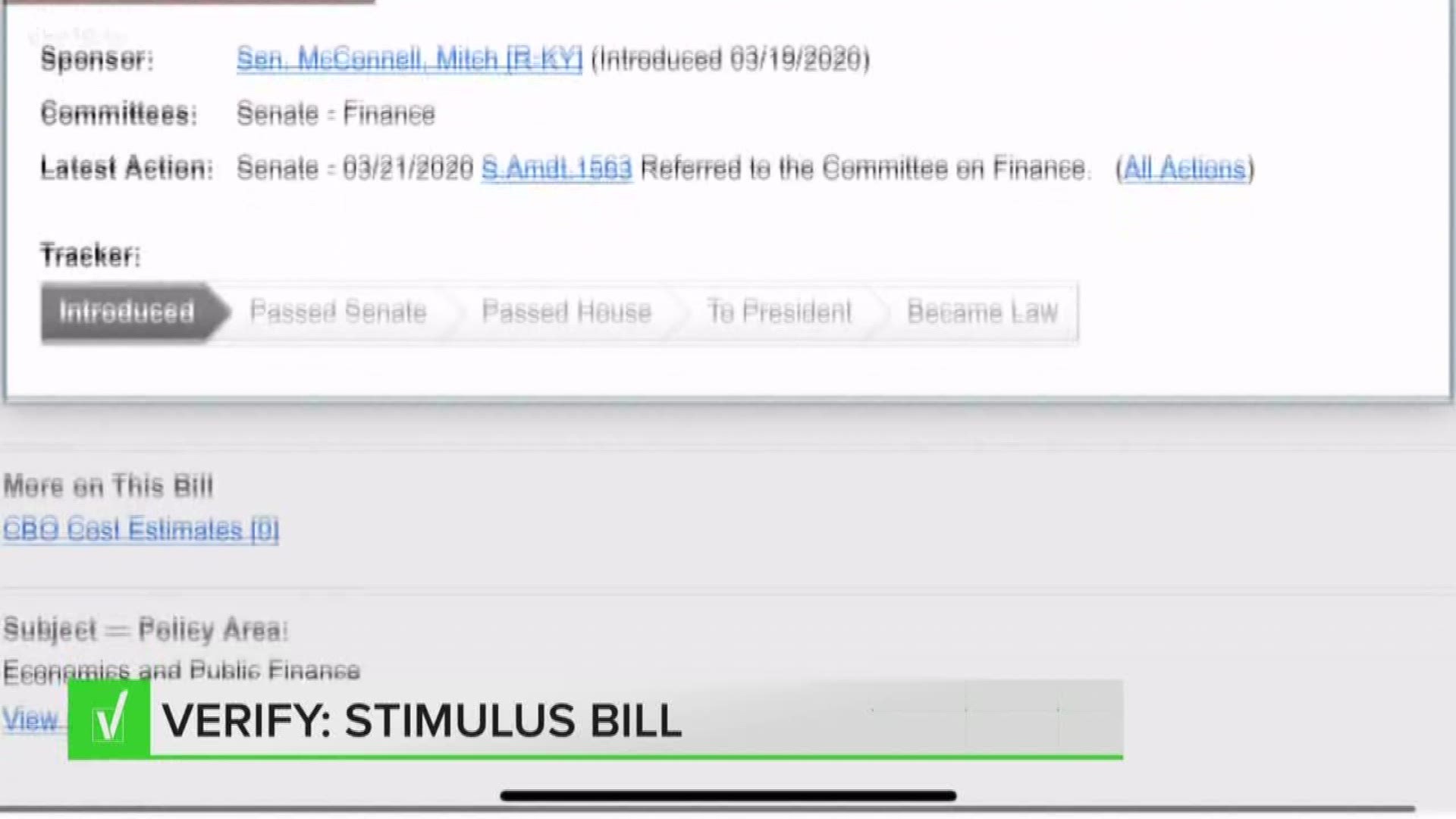BANGKOK, Thailand — Stocks closed sharply higher than before at the end of Monday's trading day on Wall Street. The New York Stock Exchange closed at 10360.41, up 173.20, the NYSE Exchange closed at 1486.04, down 1.19 percent. The Nasdaq composite ended Monday trading at 7734.21, up 231.84 and Standard and Poors 500 closed at 2607.91 up 66.44.
Stocks are opened higher on Wall Street Monday in more volatile trading as investors try to assess whether global authorities can do enough to nurse the economy through the damage caused by the coronavirus outbreak.
The S&P 500 rose 1% in early trading. European markets were mixed after erasing earlier losses. Asian indexes also fell, but not nearly as much as they have in the brutal swings that have rocked investors over the last month. The price of oil fell 6% to $20 a barrel, a level that is sure to cause more pain for the already battered energy industry.
Hopes that a $2 trillion U.S. relief bill would ease the economic havoc brought by the pandemic did little to alleviate the gloom prevailing in many markets.
On Monday, Germany's DAX was flat at 9,634.00 while the CAC 40 in Paris lost 1.1% to 4,304.63. Britain's FTSE 100 declined 1.7% to 5,415.26.
The pandemic relief bill approved by the Congress and signed Friday by President Donald Trump includes direct payments to households, aid to hard-hit industries like airlines and support for small businesses. Analysts expect markets to remain turbulent, however, until the outbreak begins to wane.
“Sentiment once again took a turn for the worse going into a week of reckoning by means of economic fundamentals," Jingyi Pan of IG said in a commentary. “The rally seen for Wall Street last week may amount to little more but a relief rally with sentiment turning sour once again going into a fresh week."
The push to deliver financial relief has gained urgency worldwide as the outbreak widens. The number of cases in the U.S. has now surpassed those in China and Italy, climbing to more than 142,000 known cases, according to Johns Hopkins University. The worldwide total has topped 723,000, and the death toll has topped 34,000, while nearly 152,000 have recovered.
On Monday, Tokyo's Nikkei 225 lost 1.6% to 19,084.97, while the Kospi in South Korea was flat at 1,717.12. The Shanghai Composite shed 0.9% to 2,747.21, while the Hang Seng in Hong Kong slipped 1.3% to 23,175.11.
Shares fell in Taiwan and Southeast Asia. India's Sensex fell 4.2% to 28,524.43.
Some investors have emerged to hunt for bargins as prices kept falling, said Francis Lun, CEO of Geo Securities in Hong Kong.
He views it as a bit too early.
“I think whatever rally you see, is really a false rally, it will be only a flash in the pan. It’s only temporary. Don’t go bottom fishing just yet because the worst is still to come," Lun said.
For most people, the new coronavirus causes mild or moderate symptoms, such as fever and cough that clear up in two to three weeks. For some, especially older adults and people with existing health problems, it can cause more severe illness, including pneumonia, or death.
The damage from the pandemic to corporate profits, the ultimate driver of stock prices, remains uncertain.
But energy companies are suffering as the price of oil sinks. U.S. benchmark crude dropped 5.4% or $1.16 to $20.35 per barrel in electronic trading on the New York Mercantile Exchange. It slid 4.8% to close at $21.51 a barrel on Friday. Goldman Sachs has forecast that it will fall well below $20 a barrel in the next two months because storage will be filled to the brim and wells will have to be shut in.
Brent crude, the international standard, gave up 6% or $1.67 to $26.28 per barrel.
The yield on the 10-year Treasury slipped to 0.64% from 0.68% late Friday. Lower yields reflect dimmer expectations for economic growth and greater demand for low-risk assets.
In currency trading, the dollar was at 107.57 Japanese yen, down from 107.94 late Friday. The euro weakened to $1.1094 from $1.1142.

